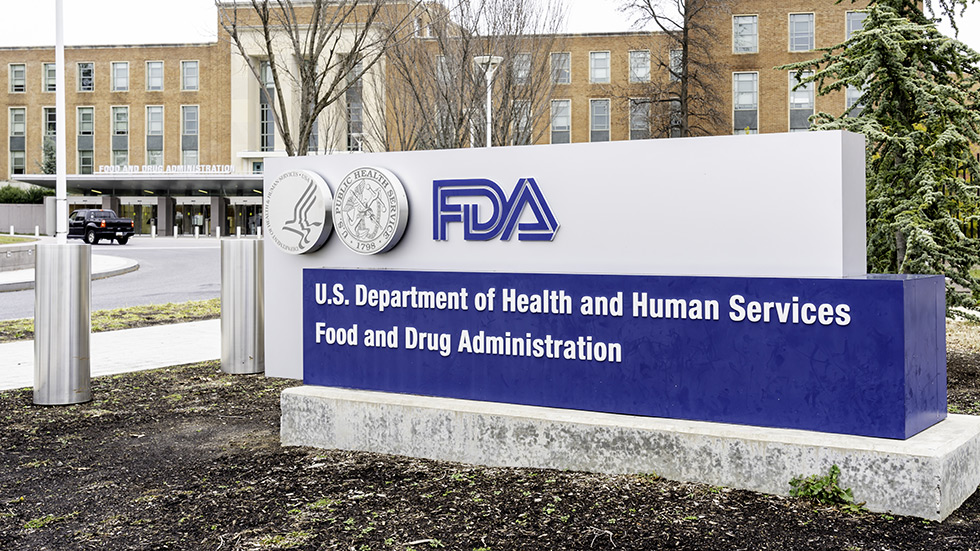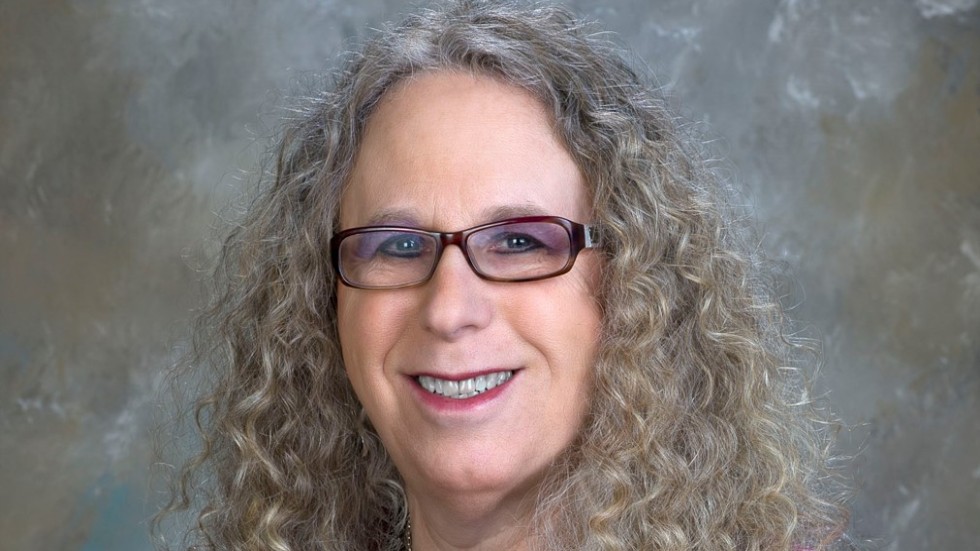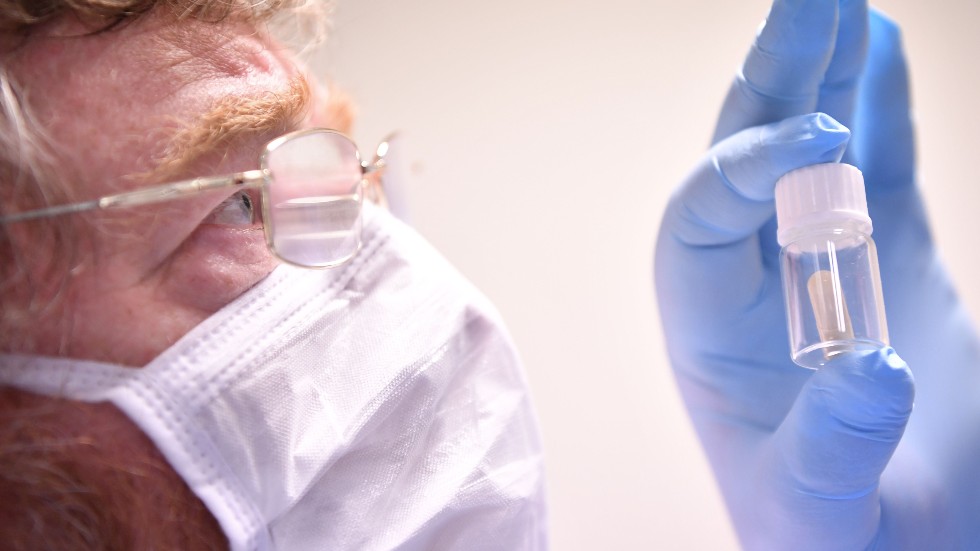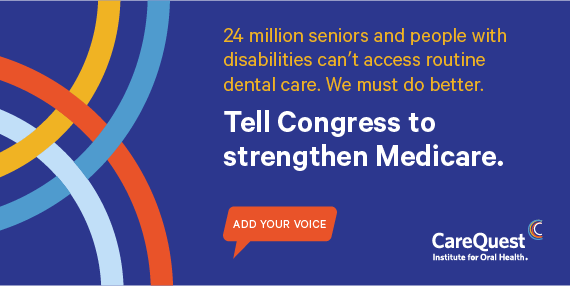Overnight Health Care — Presented by Carequest — FDA moves to sell hearing aids over-the-counter

Welcome to Tuesday’s Overnight Health Care, where we’re following the latest moves on policy and news affecting your health. Subscribe here: digital-stage.thehill.com/newsletter-signup.
Seeking dating advice for mingling during the pandemic? Surgeon General Vivek Murthy is giving advice on Hinge’s pandemic dating resource page.
The Food and Drug Administration (FDA) took a step toward making hearing aids available without a prescription to those with mild or moderate hearing loss.
For The Hill, we’re Peter Sullivan (psullivan@digital-stage.thehill.com), Nathaniel Weixel (nweixel@digital-stage.thehill.com) and Justine Coleman (jcoleman@digital-stage.thehill.com). Write to us with tips and feedback, and follow us on Twitter: @PeterSullivan4, @NateWeixel and @JustineColeman8.
Let’s get started.

The FDA is proposing a rule to offer a new category of over-the-counter hearing aids in an attempt to boost accessibility and lower costs for the devices for Americans.
The agency announced its proposal on Tuesday that would allow certain hearing aids to be sold over the counter directly to the millions of adults who have “perceived mild to moderate” hearing loss, once it is finalized.
Officials expect the proposed regulations to “likely” allow less costly hearing aids to be sold and available to the public, thus increasing competition in the market. Hearing aids can cost thousands of dollars and aren’t usually covered by traditional Medicare or private insurance, and advocates argue that making them available over the counter can drastically lower the price.
The FDA’s proposal implements the Over-the-Counter Hearing Aid Act, which was signed into law as part of the FDA Reauthorization Act of 2017.
Of course, the rule is just a proposal and major pushback is expected from hearing aid manufacturers and audiologist groups.
Reaction from senators: Sens. Elizabeth Warren (D-Mass.) and Chuck Grassley (R-Iowa), who introduced the 2017 law, praised the FDA’s proposal as “terrific news” in a joint statement.
“We’ve just cleared a major regulatory hurdle for over-the-counter hearing aids,” the senators said. “Soon, millions of people with mild to moderate hearing loss will finally have lower cost hearing aid options — and more options mean more competition in the market, further driving down the cost for consumers.”
A MESSAGE FROM CAREQUEST
SCOTUS WON’T BLOCK VACCINE MANDATE
The Supreme Court on Tuesday left intact a vaccine requirement for Maine health care workers, rebuffing another legal challenge targeting COVID-19 vaccination mandates.
The denial by Justice Stephen Breyer, who handles emergency requests from Maine, was issued “without prejudice,” meaning the applicants can file another request if circumstances change.
The challengers, a group of Maine health care workers, sought to block a vaccine requirement announced in August by Gov. Janet Mills (D). The statewide mandate, which applies to employees at hospitals, nursing homes and other health facilities, is set to take effect next week.
The suit was brought by a Christian group called Liberty Counsel, which said it represented some 2,000 employees opposed to the mandate on religious grounds. Although medical exceptions to Maine’s vaccine requirement are recognized, religious exemptions are not.
Tuesday’s move comes after the Supreme Court rebuffed similar vaccine mandate challenges by New York City public school teachers and a group of students at Indiana University.
Levine sworn in as first openly transgender four-star officer in health corps

Department of Health and Human Services assistant secretary for health Rachel Levine was sworn in Tuesday as an admiral in the U.S. Public Health Service Commissioned Corps, becoming the first openly transgender person to serve as a four-star officer in any of the country’s eight uniformed services.
With her new title, Levine will take on a leadership role in the public health service, a team of more than 6,000 people who respond to public health crises and natural disasters. The corps has helped support vaccinations during COVID-19 as well.
Levine is the first openly transgender four-star officer in the public health corps, or across the uniformed services of the military.
“I stand on the shoulders of those LGBTQ plus individuals who came before me, both those known and unknown,” Levine said at her swearing in. “May this appointment today be the first of many more to come as we create a diverse and more inclusive future.”
Levine was previously health secretary in Pennsylvania. She was confirmed by the Senate in March for her assistant secretary role, on a mostly party line vote of 52-48. Republican Sens. Susan Collins (Maine) and Lisa Murkowski (Alaska) supported her nomination.
CDC: VACCINE EFFECTIVE AGAINST YOUTH HOSPITALIZATION
The Pfizer-BioNTech COVID-19 vaccine has been found to be 93 percent effective against hospitalization for 12- to 18-year-olds, according to Centers for Disease Control and Prevention (CDC) research from when the delta variant was predominant.
Researchers calculated the vaccine efficacy using data from 464 hospitalized patients, including 179 with laboratory-confirmed COVID-19 and 285 controls without the virus, across 19 pediatric hospitals between June and September.
Out of the 179 COVID-19 patients, only 3 percent were fully vaccinated, while the vast majority had not had any COVID-19 vaccine doses.
Among the unvaccinated COVID-19 patients, 77 were admitted to the intensive care unit, 29 received life support and two died. None of the six vaccinated COVID-19 patients went to the ICU or received life support care.
Significance: The CDC study sought to add to the “limited” real-world data on vaccine effectiveness among 12- to 18-year-olds. It concluded the effectiveness aligned with the results of Pfizer’s previous clinical trial that found a 100 percent efficacy against symptomatic COVID-19 among 12- to 15-year-olds.
Despite the effectiveness, adolescents have the lowest vaccination rates out of the age groups eligible for the vaccine, with 46 percent of 12- to 15-year-olds and 53 percent of 16- to 17-year-olds fully vaccinated, according to the CDC.
COVID-19 pill sparks global equity concerns

Concern is growing among advocates that Merck’s promising new COVID-19 treatment pill could deepen the inequalities between rich and poor nations that were exposed during the coronavirus vaccine rollout.
The vast majority of COVID-19 vaccines have gone to people in rich nations. Vaccination rates lag below 10 percent in more than 50 poor countries, according to the World Health Organization (WHO), while many wealthy nations boast inoculation rates above 70 percent. And experts worry the distribution of the new drug could follow a similar trend.
Merck’s antiviral pill, molnupiravir, is a treatment for people who are already infected, not a prophylactic. But the drug appears to keep infected people from being hospitalized and dying and could be another important tool for countries to use alongside vaccines.
Unlike vaccine manufacturers, Merck has already taken steps to preemptively address global access concerns by licensing its technology with five generic manufacturers in India. The move is unusual, since it comes before the brand-name drug is even authorized in the U.S.
Under the agreements, Merck will provide licenses to these manufacturers to supply molnupiravir to India and more than 100 low- and middle-income countries at a far lower price than the branded version.
Advocates and experts said the licensing agreements are encouraging, but they’re hoping for more impactful steps.
WHAT WE’RE READING
- Mix-and-match Covid boosters: Why they just might work (The New York Times)
- Some workers want Covid-19 recovery accepted as evidence of immunity (The Wall Street Journal)
- COVID-19 and pregnancy: Women regret not getting the vaccine (The Associated Press)
A MESSAGE FROM CAREQUEST
STATE BY STATE
- If COVID-19 cases keep dropping, Pritzker wants to ‘remove certain mask mandates’ in time for the holidays (Chicago Tribune)
- Colorado’s college campuses have become COVID vaccine islands, with lower case rates than the surrounding areas (Colorado Public Radio)
- Helena hospital says doctors ‘threatened’ by public officials over ivermectin request (Helena Independent Record)
OP-EDS IN THE HILL
- We must protect and support our health care safety net
- It’s not just Americans — global COVID-Slackers will keep the pandemic alive
That’s it for today, thanks for reading. Check out The Hill’s healthcare page for the latest news and coverage. See you Wednesday.
{mosads}
Copyright 2023 Nexstar Media Inc. All rights reserved. This material may not be published, broadcast, rewritten, or redistributed. Regular the hill posts
Video/Hill.TV












